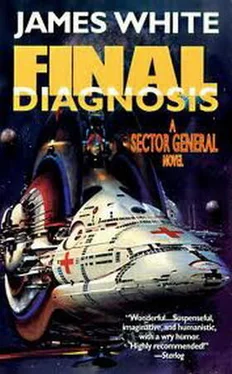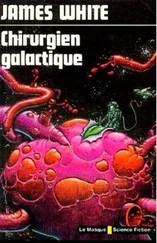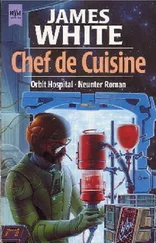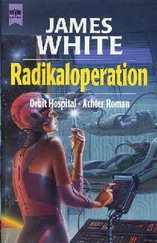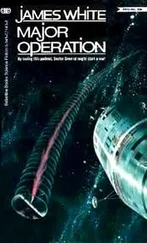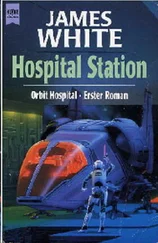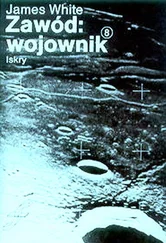“There was no opportunity for a close study of the creature,” Conway said. “Being an intelligent life-form, we required its permission for such a thorough and, for it, perhaps hazardous investigation. The only communication channel available was its emotional radiation, which provided accurate information on its feelings but no clinical facts. When Lonvellin insisted that its personal physician be returned to it without delay, reabsorption took place in eight-point-three seconds via the mucosa of an eating orifice. Except for the presence of two sources of emotional radiation and the increase of body weight, which matched exactly that of the virus creature, we could detect no physical indication of its presence within the host.
“But we must find this indetectable parasite,” he continued, “and quickly. It is an intelligent organism that so far has tried to be helpful even though its attempts, in the Hewlitt case, caused longterm physical and psychological distress. But an organism that can jump the species barrier, and has absolutely no medical knowledge beyond its own limited experience, cannot be allowed to run loose inside a multispecies hospital.”
Conway paused to look at everyone in the room before returning his attention to Hewlitt. When he spoke, his voice was calm and clinical, but the emotional accompaniment was causing Prilicla to wobble badly in flight.
“It is imperative that we reduce the field of search,” he said, “either by eliminating certain individuals or groups who are possible hosts, or by concentrating our efforts on finding the probables. The psychology staff are already plugged into the grapevine in the hope of hearing gossip about patients whose condition has deteriorated following treatment, or who have improved suddenly for no apparent reason. They will pass their findings, if any, to us for clinical investigation. But in a hospital, patients’ conditions will worsen or improve normally without the help of our intelligent virus friend.
“As an ex- host with long-term, personal experience of the organism,” Conway ended, “do you have any suggestions that might help us?”
As the only nonmedic in the room, Hewlitt was surprised that a question had been directed at him first. He wondered whether Diagnostician Conway was being polite or feeling really desperate.
“I, I didn’t even know it was there,” he said. “I’m sorry.”
Speaking for the first time, O’Mara said, “You must know something even though you may not realize you do. Were you ever aware of any thoughts or feelings that seemed foreign to you at the time, or of seeing people, objects, or events from a viewpoint that might not have been your own? Do you remember having strange dreams or nightmares, or of behaving in what seemed to be an un~ characteristic fashion? The creature’s occupation of your body was complete and physically traceless but your mind, even subconsciously, should have been aware of it. In retrospect, can you remember anything of that nature?
“Think carefully.”
Hewlitt shook his head. “Most of the time I felt very well, and at intervals very angry when I wasn’t well and nobody would believe I was sick. Now I know the reason for what was happening to me. But that thing was inside me for most of my life, so I don’t know how I would have felt if it hadn’t been there. I’m not being much help.
“Neither are you taking much time to think carefully,” said O’Mara dryly.
“Friend Hewlitt,” said Prilicla, who was sharing his feelings of embarrassment and irritation and wishing to reduce them, “we realize that the question is unreasonable because by its very nature the creature is undetectable. But consider this. For more than twenty years you have been occupied by an entity who had the ability to read your body’s genetic blueprint and, as when you accidentally poisoned yourself and suffered grave injuries in a fall and a flyer accident, restore you to optimum physical condition. This may have been simple self-preservation on its part, an evolutionary need to maintain a healthy and long-lived host. It is even possible that your friend derives pleasure and satisfaction from adapting itself to new life-forms. But maybe there is more. A highly intelligent being can be expected to have other, less selfish and more subtle feelings, like altruism, a sense of justice, or simple gratitude. It was able to share your emotions, at least those which were simple and most strongly felt, although those associated with your transition through puberty probably confused it as much as they did you. Some of them, those which led to the restoration of your dying pet and Patient Morredeth’s damaged fur, it understood well enough to be able to act on them.
“Did it do this because it was sharing your grief,” Prilicla went~ on, or was it simply taking advantage of the chance to explore another life-form? Either way, it left that kitten in a state of health that has been maintained long past the normal life expectancy for that species. It left you, Patient Morredeth, and, presumably, an as yet unknown number of others in the same condition of perfect health. We would like to know why. If friend O’Mara can gain some idea of how this entity is motivated, we will have a better chance of finding and trapping it.”
“I would help you if I could…“Hewlitt began, when the chief psychologist raised a hand.
“We know that,” said O’Mara. “This thinking entity occupied your body. It must have used your sensory input because it was aware, however imperfectly, of your outside world and was under your emotional direction during the incidents with the cat and Morredeth. I realize that the situation was abnormal in that you had no physical or psychological baseline with which to make comparisons. But if you were sharing sensory input and feelings, it is logical to assume that the process was two-way and that you had some awareness of the creature’s thought processes even though you did not recognize them for what they were.
“You probably think I am clutching at straws,” the chief psychologist ended. “I am. Well?”
Hewlitt was silent for a moment as he tried to organize his thoughts. Then he said, “I want to help you, Major O’Mara. But if I were to recall the memories and feelings of twenty-odd years, they might not be clear or accurate and some of them would be influenced or distorted by my present knowledge of what was really going on. Isn’t that so?”
The psychologist’s steady, grey eyes had been fixed on Hewlitt’s face since he had begun speaking. O’Mara said, “And the next word you say will be ‘But.’”
“But,” said Hewlitt obligingly, “the things that happened to me since my arrival in Sector General are clearer, and some of my feelings surprised me. To explain I have to go back to when I was a child.”
O’Mara continued staring at him. He seemed to have forgotten how to blink.
Hewlitt took a deep breath and went on. “I was too young at the time to be told or even to understand the cultural-contact reasons why all the off-worlders attached to Etla base were expected to show an example to the natives by other-sp~ies socializing, which included showing them the Tralthan, Orligian, Kelgian, or whoever’s children playing together, under supervision, of course. One day the supervisor happened to be looking at another area of the swimming pool when I was dragged under by a Melfan amphibian who thought that I could breathe water, too. It was an accident and I was more frightened than hurt, but I never attended the other-species playground again. My parents told me I would grow out of my fear, but they didn’t push it. That was the reason I was at home and, feeling bored, wandered off to explore and had that accident in the tree.
“From your monitoring of my conversation in the ward,” he continued, “you already know that my work on Earth is interesting but not exciting and never involved meetings with off-worlders. I saw them on the Earth-vision broadcasts but did not, as my parents had promised, grow out of my childhood fear of them. There were a few extraterrestrials attached to the hospitals I attended, but I refused to allow them anywhere near me, and believing that I was really a psychiatric case, my doctors agreed to keep their otherspecies medics away from me.
Читать дальше
